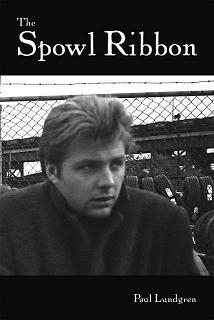Glossary of Music Genres
 There’s pretty much no such thing as a rock band anymore. A rock band couldn’t possibly be as cool as a screamocore post-punk dream-rock math band. The proliferation of such terms, however, has created some confusion among casual music fans. “What in the world is grindcore?” some wonder.
There’s pretty much no such thing as a rock band anymore. A rock band couldn’t possibly be as cool as a screamocore post-punk dream-rock math band. The proliferation of such terms, however, has created some confusion among casual music fans. “What in the world is grindcore?” some wonder.
That’s why the Homegrown Music Festival steering committee commissioned the handy list of meaningless music-style descriptors with vague definitions that appears below. The glossary was originally compiled for the 2007 Homegrown Field Guide, and appears here as a refresher course.
Obviously it’s not necessary to include well-known genres like rap, soul, techno, country, hip hop, blues and reggae in the list because most people are familiar with those terms.
Also, since the list of music-writer lingo is seemingly endless, and this particular writer is lazy, numerous terms such as trance, electronica, reggaeton and synth pop will have to be left undefined. The goal here is not to be comprehensive, but simply to be helpful.
American roots music is basically folk music, but saying “American roots” or “Americana” instead of “folk” leaves the impression the artist is more like Woody Guthrie than like Joni Mitchell.
Black metal is thrash metal played by people who dislike mainstream culture and religion. The goal is to show contempt for anything conventional by distorting and otherwise mangling song structures while shrieking a lot. You know, get mad at the man, take it out on music in general.
The suffix “core” at the end of a genre name is a way to overemphasize that the music is “hardcore.” The “core” is superfluous, of course, because it’s only used with genres that are already considered hardcore. There is no adult contemporarycore, for example.
Crust punk is a blend of punk and heavy metal that promotes anarchy by being so loud and crazy that it contributes to societal breakdown. It’s been fairly successful so far.
Death metal is a subgenre of heavy metal closely associated with grind, but with even more violent and nihilistic lyrics. Yay! Go death go!
Emo is a subgenre of punk. The term “emocore” is short for “emotional hardcore.” Apparently, members of emo bands could break into tears and commit suicide at any moment.
Experimental music is any type of music that doesn’t sound like music. Sticking a microphone into a popcorn popper while urinating onto a xylophone is one way a musician could be considered “experimental.”
Grind is hardcore music with extra distortion. Usually grind lyrics are either gory or political in subject matter and practically growled by the singer. A typical lyric would be something like: “Decoded treachery shielding the tyranny, black Bible tyrants behind masks of righteousness.” But the words would be indecipherable and sound like a goblin trying to chew his way out of a furnace.
Grunge is hard rock music played by people who aren’t dressed in leather and chains, but do have messed up hair, ripped jeans and perhaps a few tattoos.
Hardcore is a subgenre of punk that is supposedly thicker, heavier and faster. In other words, hardcore is too punk to be considered punk.
Indie is short for “independent” and refers not to a music style, but rather an attitude. Indie groups are bands that have not been signed to a major recording label and insist that it makes them cooler not to be.
Jam music is rock music played by people who admire the improvisational abilities of jazz musicians. The Grateful Dead are generally considered pioneers of this type of music, which is characterized by smoking pot and turning what should be a three-minute song into 18-minutes of jacking off. This “jamming” is known to leave band members less time in the day for personal hygiene.
Math rock is rock music with atypical rhythm structures arrived at by using odd-time or frequently changing meters instead of the traditional 4/4 beat — whatever that means.
Post anything, as in “post punk,” “post metal,” etc, is a term used to express that a band has taken a familiar genre and developed it to a level that is so awesome it can no longer be defined by its old, generic label.
Screamo basically means the singer screams a lot. It is also characterized by harmonized guitars, fast-paced riffs and other subtle things that really don’t stray far enough from other forms of music to require yet another genre name.
Shoegaze, or “dream pop,” is a subgenre of indie and alternative rock characterised by delicate and obscured vocals and distorted guitar effects. The instruments are loud, but the singers hum softly into the microphone while staring at the floor and acting all detached so we wonder what’s wrong and long to console them.
Speed metal is heavy metal, only faster.
Surf rock is danceable, guitar-driven music that creates the aura of a groovy California beach party circa 1962 that suddenly erupts into a dune-buggy race.
Thrash metal is speed metal, only faster.
Trip hop is down-tempo electronic music similar to hip hop, but often more reliant on breakbeats and samples. Basically, the implication is that the music is more of a “trip” than hip hop. Like, wow, man. Trippy.
 Paul Lundgren is not a musician but was a vocalist in the Junk Drawers from 2004 to 2007. The band primarily played acoustic folk/rock duets, and probably could have been described as “cutesycore.” Lundgren also is a founding member of the Lake Superior Cacophonic Choir, a group of horrible singers who belt out profanity-laced songs about drinking, kicking up sparks and resisting beastiality. Oh, and he’s the author of The Spowl Ribbon, a book that doesn’t contain any of the essays that appear on Perfect Duluth Day.
Paul Lundgren is not a musician but was a vocalist in the Junk Drawers from 2004 to 2007. The band primarily played acoustic folk/rock duets, and probably could have been described as “cutesycore.” Lundgren also is a founding member of the Lake Superior Cacophonic Choir, a group of horrible singers who belt out profanity-laced songs about drinking, kicking up sparks and resisting beastiality. Oh, and he’s the author of The Spowl Ribbon, a book that doesn’t contain any of the essays that appear on Perfect Duluth Day.
Recommended Links:
Leave a Comment
Only registered members can post a comment , Login / Register Here














2 Comments
TimK
about 7 years agoPaul Lundgren
about 7 years ago